A year ago, I began a journey from activist to advocate. I desired to turn my concern and passion into effective compassion. That desire was rooted in my faith.
Last Wednesday, May 6 2020, I celebrated my graduation from Villanova University College of Professional Studies VIISTA program in immigration advocacy with my wife Ann. VIISTA is a year- long program preparing me and my fellow students to accompany, assist and advocate for immigrants and refugees.
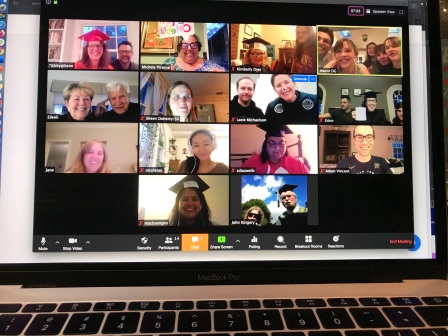
Our primary instructor was Professor Michele Pistone, Director of the Clinic for Asylum, Refugee and Emigrant Services, passionately sharing her thirty years of immigration law knowledge and experience. She is an advisor to the Holy See Mission to the United Nations on migration, an Associate Editor of the Journal on Migration and Human Security, pioneer in on-line legal education and co-authored Stepping Out of the Brain Drain: Applying Catholic Social Teaching in a New Era of Migration (Lexington Books 2007). She taught us the VIISTA 5-stage advocacy process of (1) researching the law, (2) gathering the facts, (3) analyzing the case, (4) written advocacy and (5) oral advocacy enabling us to effectively serve our clients.
Professor Pistone was not alone in this endeavor. Retired Judge Paul W. Schmidt, former Chairperson of the Board of Immigration Appeals shared insights of being prepared, knowing your case’s theory, and respect the professionalism of those involved.
Ayodele Gansallo, HIAS PA and Adjunct Professor University of Pennsylvania School of Law provided a basis for researching and understanding the application of immigration law and regulations through her text book Understanding Immigration Law.
Ruth Anne Robbins, Professor, Rutgers Law School and JC Lore, Professor Rutgers Law and National Institute of Trial Advocacy presented tools for developing persuasive written and oral advocacy.
Along with learning the law, we gained insights in to the trauma immigrants and refugees may face leaving their homes, being in transition, arriving in the United States and the adjustment afterwards.
In completing the program, I have the skills and knowledge to accompany refugees and immigrants with compassion. I can apply to be a partially or fully accredited representative through the US Department of Justice. To achieve either of those statuses, I need to be a volunteer or employee of a “recognized organization”. They are generally non-governmental agencies providing free on low cost legal services to immigrants. Examples are Catholic Charities, Lutheran Community Services, CAUSA, and Ecumenical Ministries SOAR.
As a partially accredited representative, I will be able to represent clients before United States Citizenship and Immigration Services (USCIS) and Customs and Border Patrol (CBP) seeking citizenship or legal permanent residency or visa benefits.
As fully accredited representative, I will be authorized to appear before the immigration courts and the Board of Immigration Appeals (BIA) for clients applying for asylum or contesting deportation.
Faith has a voice through effective compassion serving immigrants and refugees. As a VIISTA graduate, I will apply my knowledge and skills ensuring justice at the table. I am ready to serve.
“What does the Lord require of you? To act justly, and to love mercy and to walk humbly with your God.” Micah 6:8
Graduation Photos
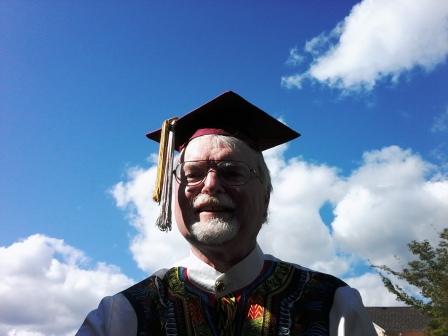
Smiling before graduation 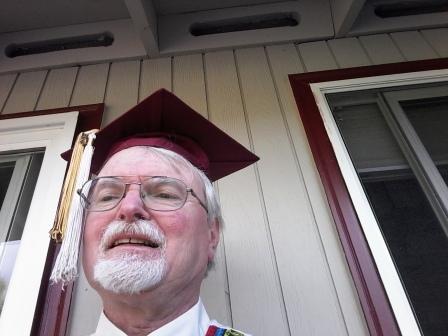
Ready to Serve. 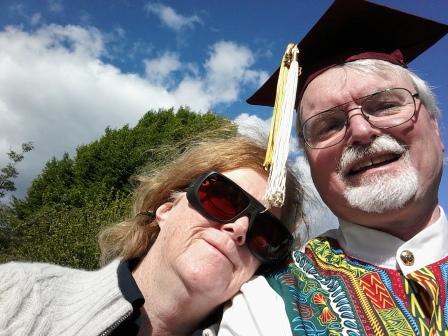
Proud of John 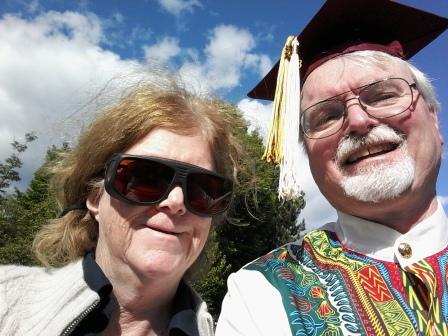
Happy graduate and wife. 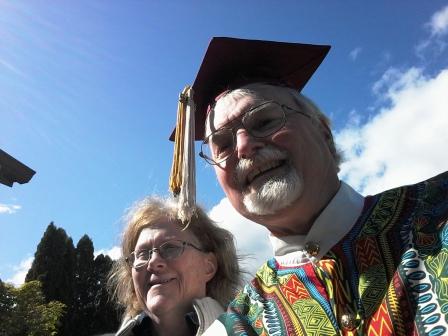
John graduated! 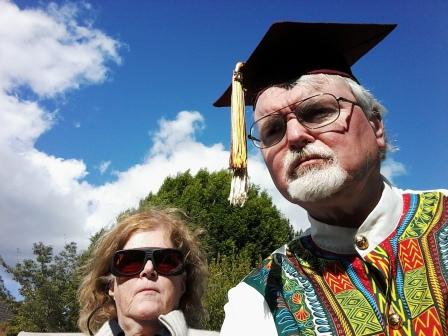
Watch our for the K team
